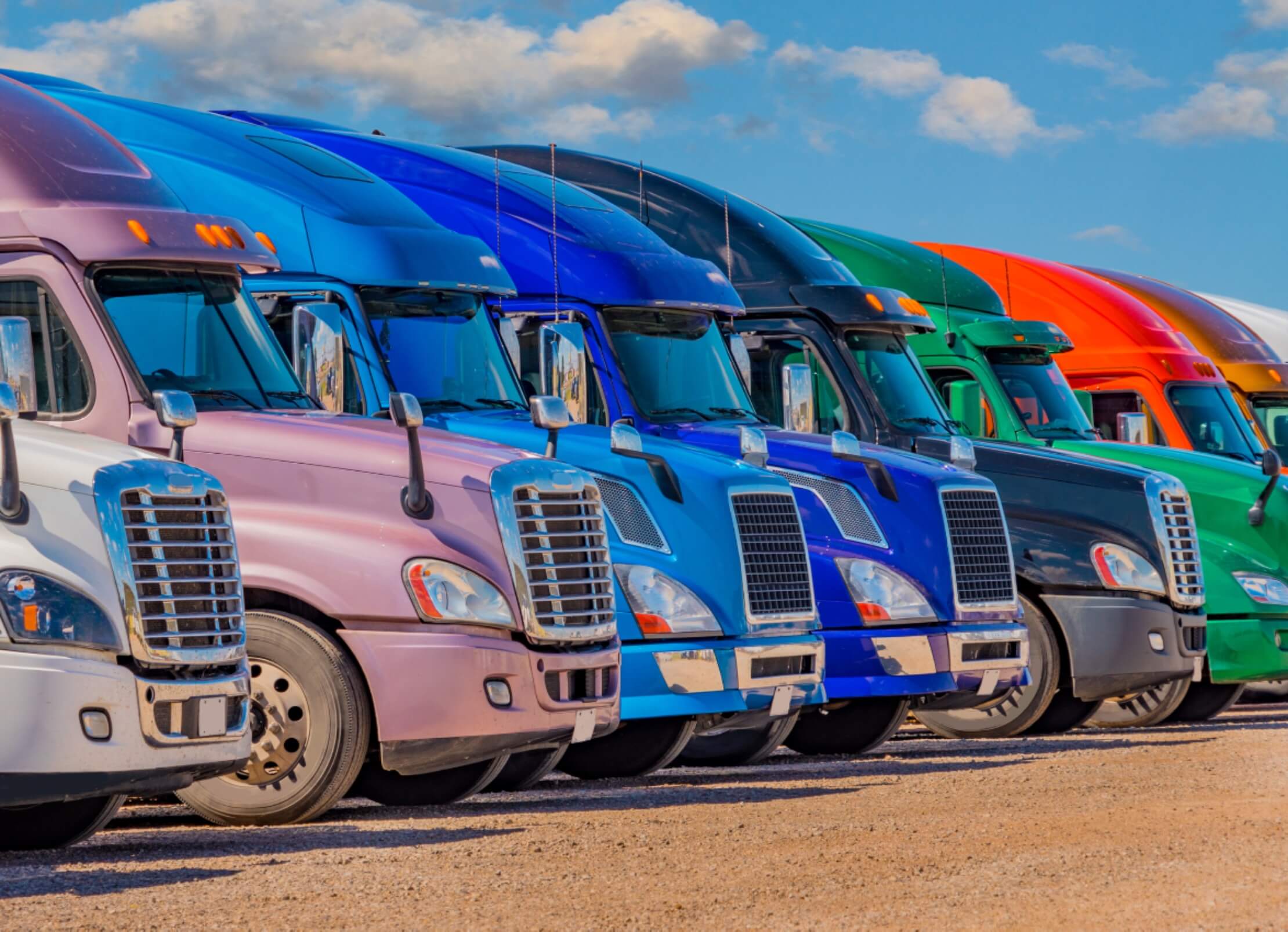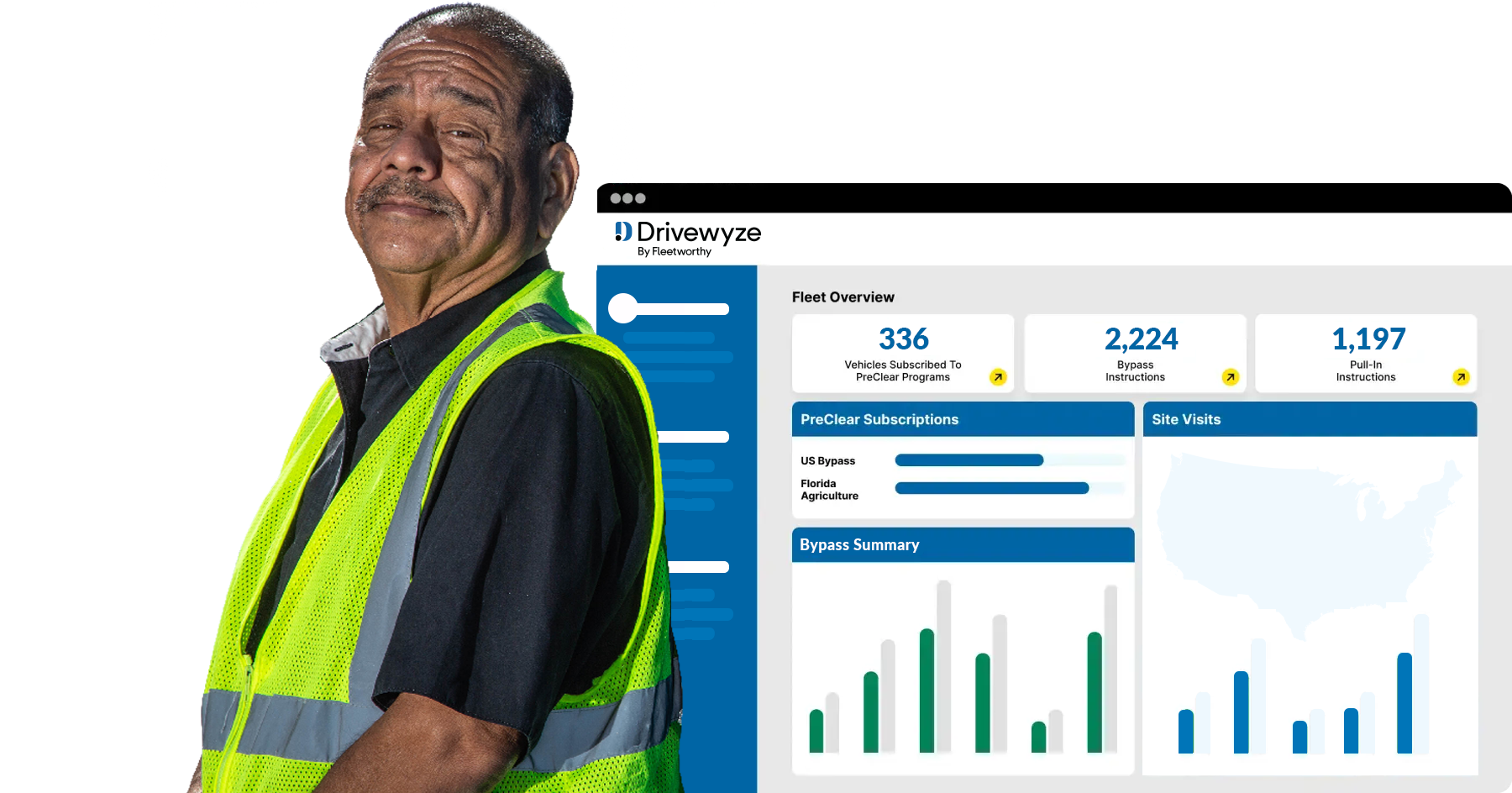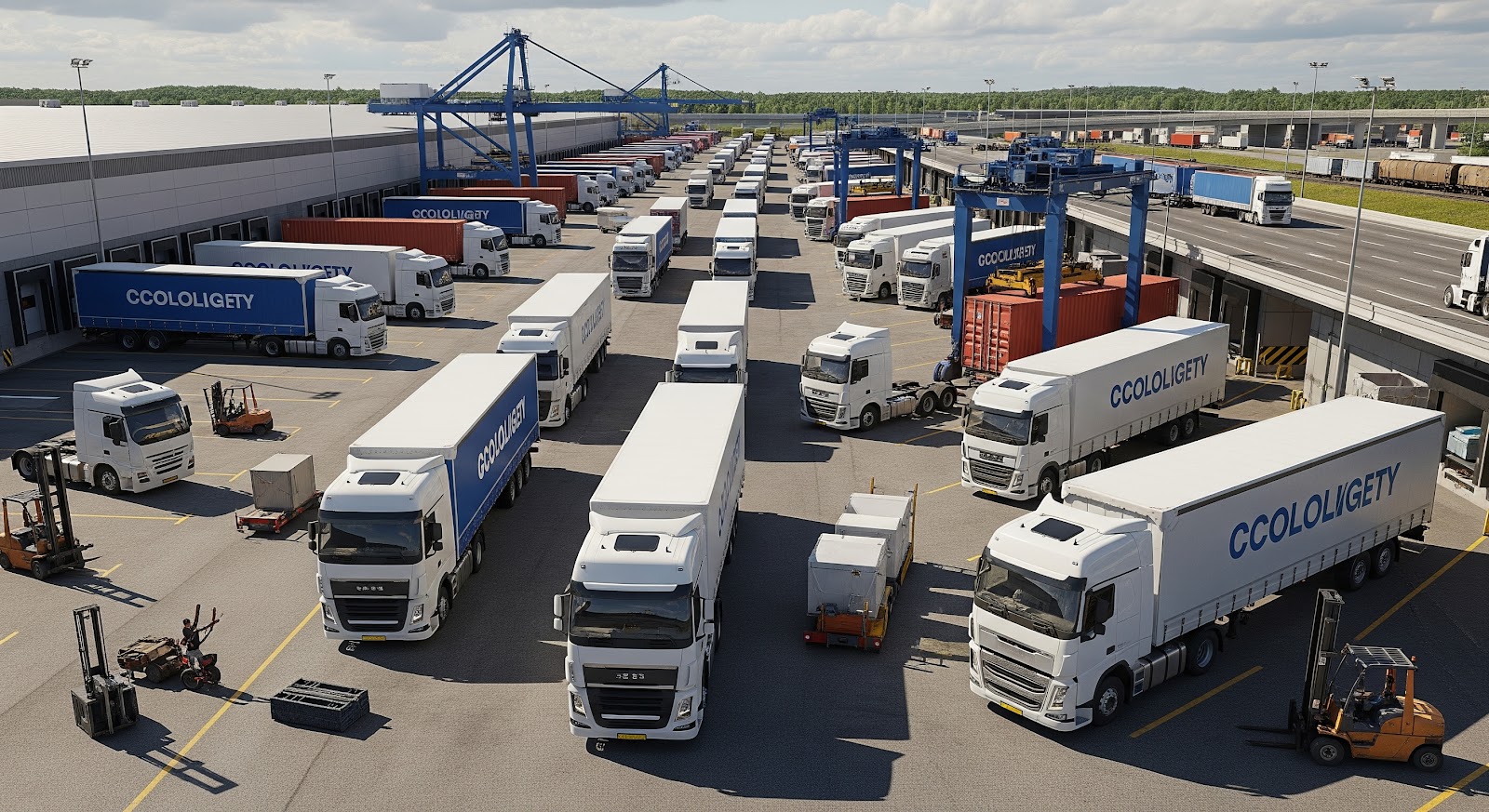Weigh stations are an essential part of keeping the trucking industry safe and can be found along highways from coast to coast. But why exactly are they so important? In brief, weigh stations do exactly what their name suggests: namely, ensuring that a truck is not overweight and is in full compliance with state and national regulations regarding weight safety.
The weight of a truck is usually measured by two factors:
- Axle weight: the weight placed on each of the truck’s tandem axles
- Gross weight: measuring the total weight of the truck’s load including any additional accessories carried by the tandem axles
Ensuring that a truck is not carrying an oversize load keeps drivers from taking their trucks onto roads that cannot handle the weight. It also helps prevent repairable damage, that could end up being costly, to roadways, bridges, and other public infrastructure.
How Weigh Stations Work
As trucks near a station, they may pass through pre-screening technologies like weigh-in-motion (WIM) scales embedded in the roadway, providing the truck’s weight while the vehicle moves. Some stations employ Electronic Logging Devices (ELDs)—such as transponders—that allow qualifying trucks to bypass the station if they meet specific criteria based on weight and safety records.
If there aren’t any WIM scales, truckers drive off the highway and onto static truck scales for accurate measurement of axle and gross vehicle weights. Beyond weighing, officials may conduct inspections to ensure compliance with safety regulations, checking aspects like vehicle registration, driver’s CDL and logbooks, equipment condition, and cargo securement.
Once weighing and any necessary inspections are complete, drivers can continue their journey if no violations are found. However, if issues are found, they may face fines or be required to address the problems before proceeding.
Vehicles Required to Stop at Truck Weigh Stations
Understanding which vehicles are required to stop at weigh stations is necessary for compliance and safety.
Commercial Vehicles Over a Certain Weight
Most states mandate that all commercial vehicles with a Gross Vehicle Weight Rating (GVWR) of 10,000 pounds or more must stop at inspection stations, including:
- Semi-Trucks and Tractor-Trailers: Regardless of whether they are loaded or empty.
- Buses: Commercial passenger buses are often required to stop for weighing and inspection.
- Large Delivery Trucks: Vehicles used for transporting goods that exceed the weight threshold.
Vehicles Carrying Specific Types of Cargo
Some states require vehicles transporting certain types of cargo to stop, irrespective of their weight:
- Hazardous Materials: Trucks carrying hazardous or flammable materials are typically required to stop for safety inspections.
- Agricultural Products: In certain states, vehicles hauling livestock or agricultural goods must stop.
Interstate Commercial Vehicles and Rental Trucks
Long-distance vehicles crossing state lines are often required to stop at weigh stations when entering a new state to ensure compliance with local regulations.
Drivers of large moving trucks (such as those from U-Haul or Penske) may also be required to stop if the vehicle exceeds the state’s weight limit.
Penalties for Missing a Weigh Station
Missing a weight station is considered a violation, and highway patrol officers have the authority to stop your motor vehicle. Penalties vary from state, including receiving hefty fines, losing your CDL, or even jail time.
Fines and Penalties
Weigh stations are overseen by a state’s Department of Transportation (DOT), so the exact fines for skipping a weigh station vary. Fines can range from low to high and may be:
- High Fines: In states like California and New York, fines can exceed $1,000 for a first offense.
- Medium Fines: States like Texas and Florida may impose fines ranging from $500 to $1,000.
- Low Fines: In states such as Ohio and Nebraska, fines might be around $200 to $300.
Risk of Losing Your CDL
Accumulating points on your driving record from violations like skipping weigh stations can lead to suspension or even revocation of your Commercial Driver’s License (CDL). This not only affects your current job but can have long-term implications for your career in trucking.
Possible Jail Time
While it’s rare, extreme cases or repeated offenses could result in jail time. If a driver intentionally avoids weigh stations to conceal illegal activities, such as transporting contraband or severely overweight loads, they may face criminal charges that include incarceration.
Time Loss and Additional Inspections
Drivers may be asked to turn their commercial trucks around and return to the missed scale house, resulting in vital lost travel time. Once returned to the open weigh station, the truck may be subject to an inspection.
With increased traffic at the weigh station, the driver’s chance of being chosen for a Level 1 DOT Inspection may increase, after which further financial and legal penalties may accrue depending on the truck’s compliance with DOT regulations. (For a full guide to the DOT Inspection levels, see here.)
How to Avoid Missing a Weigh Station
Fortunately for drivers and fleet managers alike, technology is improving all the time, meaning it’s easier than ever for drivers to track their route and ensure they don’t miss a weigh station.
Drivewyze provides drivers with a free and easy resource to solve this problem through their PreClear app: a nationwide, costless weigh station alert service. By downloading the app, drivers will be able to receive alerts before weigh stations to ensure they stop.
Drivewyze also offers a weigh station bypass service, which allows drivers to bypass over 800 fixed weigh stations across the country and in Canada. This service has a multitude of benefits, including improving efficiency and reducing penalties from missing weigh stations.
Have more questions about weigh stations, truck safety, or other driver responsibility topics? Drivewyze offers a wide range of solutions, resources, webinars, and other support for all those involved in the industry. Contact us todayto learn how we can support your fleet!
FAQs About Missing a Weigh Station
Aside from the possible legal and financial penalties which may result from missing a weigh station, here are some other frequently asked questions and answers about what happens if you don’t stop at a weigh station.
Do I have to pull in to a weigh station when my truck is empty?
Yes. Even trucks not carrying a load will be asked to stop at the weigh station. Therefore, it is best to stop whether your truck is full or not.
Can I go to jail for skipping a scale?
While it is unlikely that a driver will be charged on a first offense for skipping a weigh station, it is best practice to avoid it and always make the stop. A driver who has been pulled over multiple times for missing a station only increases the possibility of further legal action against them.
Besides this, weigh stations can contact a driver’s company if they skip a station, which may lead to suspension, probation, or termination. For more information about the legal issues surrounding this matter, see some resources from the FMSCA here.While it is unlikely that a driver will be charged on a first offense for skipping a weigh station, it is best practice to avoid it and always make the stop. A driver who has been pulled over multiple times for missing a station only increases the possibility of further legal action against them. Besides this, weigh stations can contact a driver’s company if they skip a station, which may lead to suspension, probation, or termination. For more information about the legal issues surrounding this matter, see some resources from the FMSCA here.
Am I immune if I can’t merge to reach a weigh station for safety reasons?
Of course, it is always best to drive safely and securely; however, being unable to merge does not absolve a driver from skipping a weigh station. The best practice in this scenario would be to continue driving past the station before turning back if the conditions do not allow you to merge immediately. The same can be said of drivers who accidentally miss a weigh station: the sooner you realize, the easier it will be to turn around and get weighed.
Why do truck drivers skip weigh stations?
Some drivers might be under tight delivery schedules and believe that stopping will cause significant delays. Others might be attempting to avoid fines or penalties associated with overweight loads or equipment violations that they know would be detected during an inspection.
In some cases, drivers may simply miss the signage due to fatigue or unfamiliarity with the route. Regardless of the reason, bypassing a weigh station is a serious violation that can lead to severe consequences for both the driver and the trucking company.
Is it illegal to go around weigh stations?
Yes, it is illegal to intentionally avoid or go around weigh stations when you’re required to stop. Weigh stations are mandated checkpoints designed to make sure that commercial vehicles comply with weight regulations and safety standards. Deliberately bypassing them is considered a violation of federal and state laws.
Law enforcement agencies monitor common routes used to skip weigh stations and may increase patrol officers or add automated detection systems to catch violators.
When can drivers skip a station?
Truck drivers can legally skip a weigh station under certain conditions. If the weigh station is closed, as indicated by signs or signals, drivers are not required to stop. Some states also exempt vehicles under a specific weight threshold or certain types of cargo from stopping. It’s important for drivers to observe all signs and state regulations as to whether they can legally skip a weigh station.

Ready to Get Started?
Learn how North America’s leading carriers use Drivewyze to save money and improve safety.





